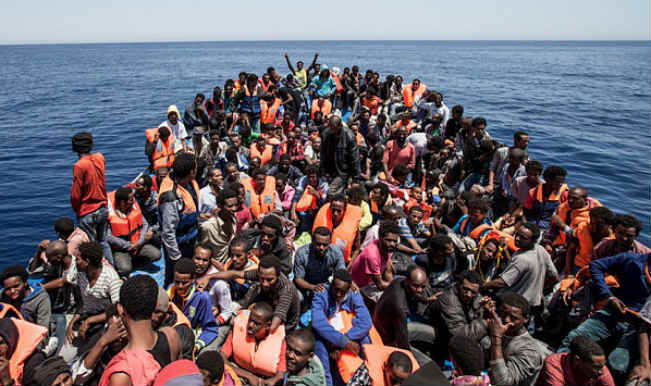Migrants danced and burst into song as a rescue ship brought them into the Italian port of Taranto at dawn on Tuesday, days after they were found drifting in a rubber dinghy in the Mediterranean.
The 62 mostly West and Central Africans packed up their bedding as they celebrated the end of a political tussle over their fate – Italy had initially refused to take them and only relented at the weekend.
“Hopefully they can leave these terrible experiences they’ve lived behind and Europe will treat them with humanity,” said a spokeswoman for the Spanish charity Open Arms, which found the migrants 50 miles off Libya on Wednesday last week.
Overall, numbers of migrants reaching Europe are way down from the peak in 2015. But thousands fleeing poverty and conflict across the Middle East and Africa still attempt the perilous journey, fuelling support for anti-immigration parties across the continent.
Italy’s government had said the charity’s ship Open Arms should drop the migrants off in Tripoli under international arrangements. But Rome changed its position after the coastguard evacuated 11 other members of the group, including young children and several injured.
In Taranto on Tuesday, police and medics boarded the ship to make brief checks as the migrants waited in line to walk down a narrow gangway.
There was no immediate comment on the arrival from the Italian government.
More than 1,100 migrants have died or are missing at sea after attempting to cross the Mediterranean this year, according to the International Organization for Migration.
Italian authorities saved 149 people from a dinghy that capsized off the island of Lampedusa on Sunday. The bodies of five women were retrieved and several others remain unaccounted for.
“Events of the past few days prove once more that crossing the Mediterranean is still extremely dangerous,” said Laurence Hart, director of the IOM Coordination Office for the Mediterranean.
Open Arms Mission Chief Ricardo Gatti said the ship planned to return to sea as soon as possible to continue its rescue work. (Reuters)




